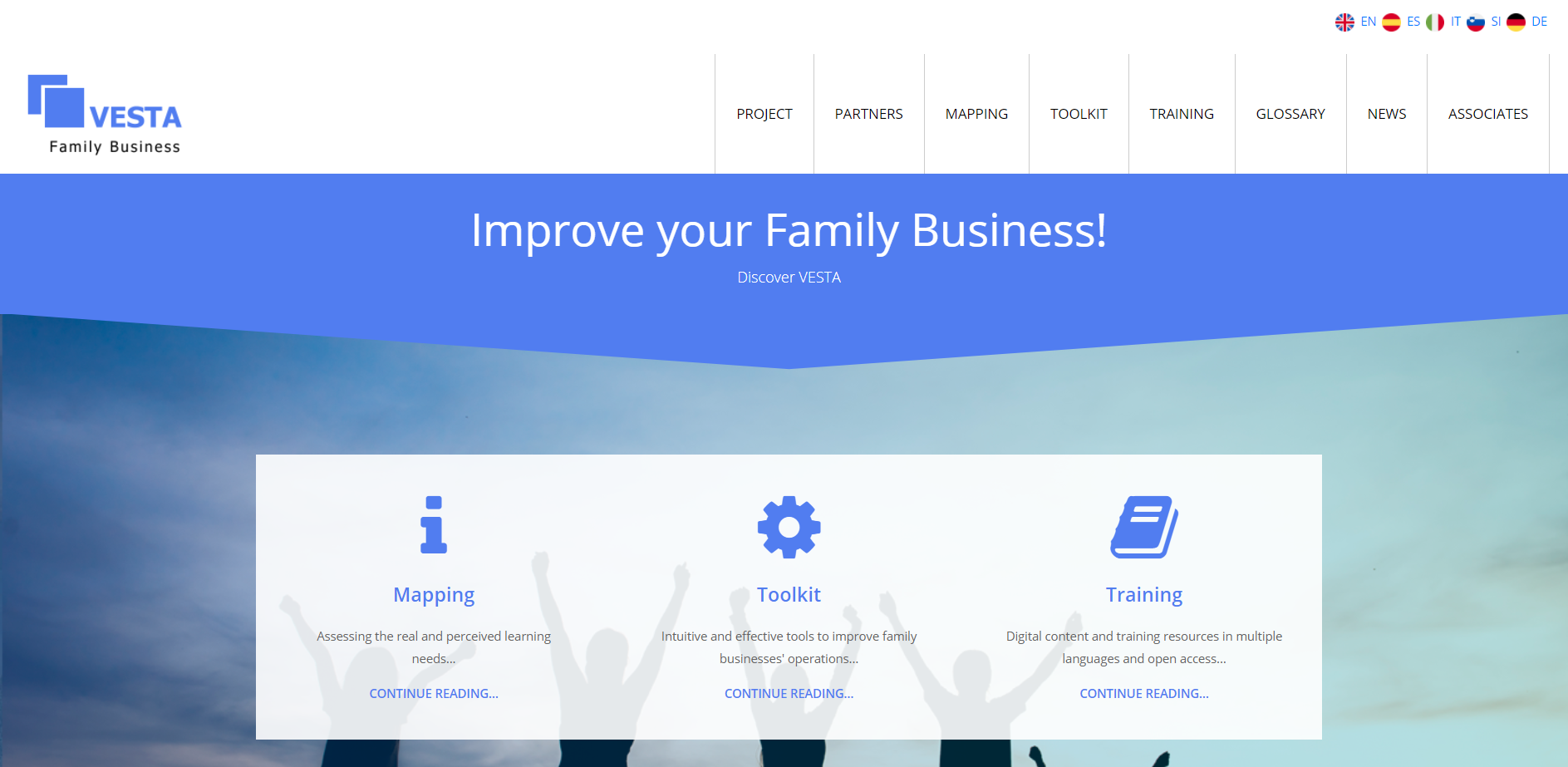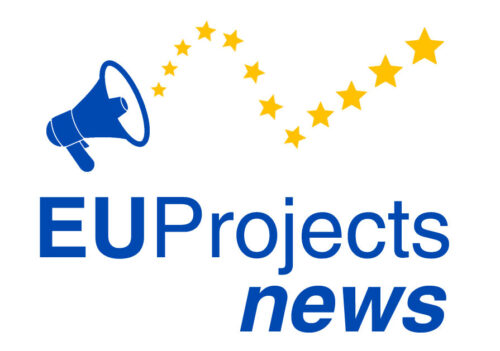
The VESTA Website is now online ( https://www.projectvesta.eu/ ) providing specific info on project aims, activities and results. The platform will contain all the Project’s information, deliverables and outputs.
The Project’s aim is to support the growth and sustain the competitiveness of family enterprises so that they can strive and continue to play that crucial role of social buffer and economic engine of growth, by developing innovative operational tool and training resources.
The very user-friendly Platform has been built by the Spanish partner, IWS (Internet Web Solutions), and will be constantly updated by the partnership as a whole during the project implementation. VESTA Website is available in five languages (English, German, Italian, Slovenian and Spanish) and is composed by multiple sections freely available to all navigators.
HOME: the section introduces users to the VESTA platform by highlighting the three main results of the Project:
- Mapping
- Toolkit
- Training
PROJECT: explains the main aim of the VESTA Project (“why VESTA?”), providing users with background information on the family business phenomenon and how the Project will support the growth and competitiveness of family enterprises.
PARTNERS: describes the Partners involved in the VESTA Project.
MAPPING: this section will contain the final report on the family enterprise ecosystem, which will allow the Partners in defining and assessing the real and perceived training needs.
TOOLKIT: includes innovative and useful tools to improve family businesses’ operations. In particular:
- Self-assessment tools to evaluate on a series of indicators (operational, managerial, family, etc.) to discern between “real” and “perceived” challenges of family enterprises;
- Operational tools to guide family enterprises, especially the microenterprises, through processes and challenges relating to inter-generational learning, handover and succession, human resources and strategy formulation.
TRAINING: will include contents and tools in a multilingual version (English, Spanish, Italian, Slovenian and German).
GLOSSARY: defines and explains the main terms related to the family business.
NEWS: to remain always updated with VESTA latest development.
ASSOCIATES: in order to involve as many Associated Partners as possible and spread the word about VESTA to end-users, targets, general public and ultimate beneficiaries.
IWS will be the technological partner, in charge of the creation of the platform, its maintenance, adaptation and functioning, and will also contribute and implement all the phases and steps of the projectVESTA is managed by six Partners from five countries, i.e. Belgium, Germany, Italy, Slovenia and Spain, and is co-financed by the Erasmus+ Programme of the European Commission.







